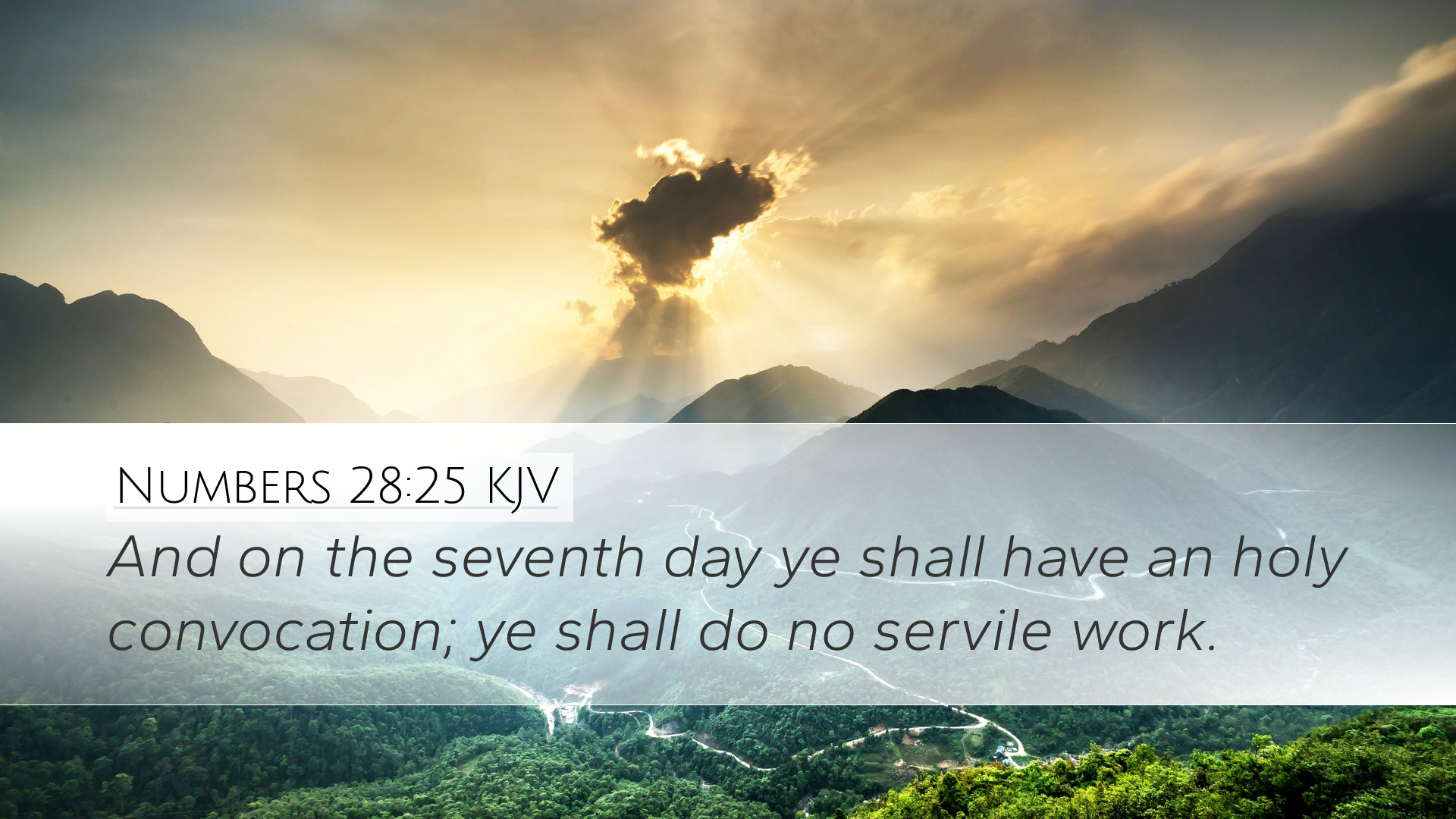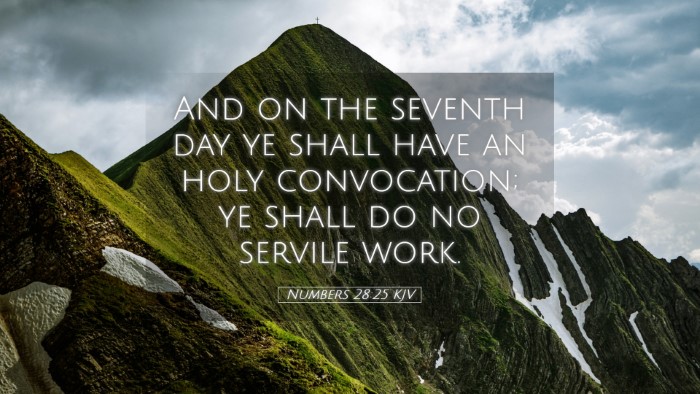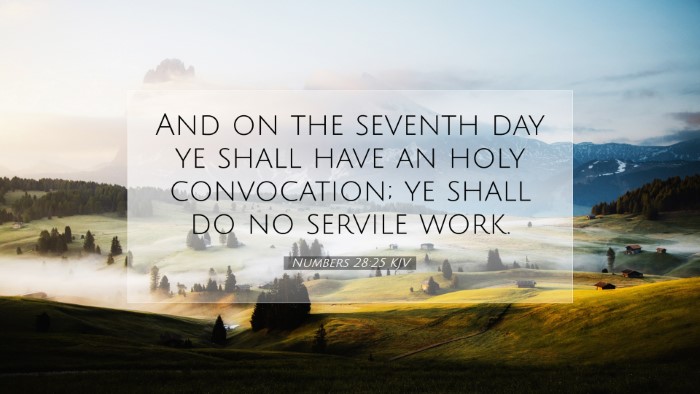Commentary on Numbers 28:25
Bible Verse: "And on the seventh day ye shall have an holy convocation; ye shall do no servile work." (Numbers 28:25)
Introduction
This verse is nestled within the context of the sacrificial rites and religious observances prescribed to the Israelites. Here, God outlines the significance of the Sabbath observance and the associated offerings, establishing a rhythm of work and rest integral to the Mosaic Law.
Contextual Background
The 28th chapter of Numbers details the offerings to be made by the Israelites on various occasions, including daily offerings, Sabbath offerings, and special feast offerings. Specifically, verse 25 emphasizes the importance of rest and communal worship on the Sabbath, a theme consistently highlighted throughout the Scriptures.
Theological Insights
This verse underscores several theological principles:
- The Importance of Rest: Just as God rested on the seventh day after creation, the Israelites are commanded to observe the Sabbath as a day of rest. This injunction highlights the theological notion that rest is integral to the rhythm of creation.
- Holy Convocation: The phrase "holy convocation" indicates a sacred gathering, signifying communal worship. The assembly of the people reflects the unity of the community before God.
- Separation from Ordinary Work: The prohibition of "servile work" on the Sabbath signifies a departure from the regular labor, marking the day as set apart for divine focus and reflection.
Commentary Insights
Matthew Henry's Perspective
Matthew Henry emphasizes that the Sabbath is not merely a day off but a holy institution intended to draw the people closer to God. He articulates that the convocation serves not only as a communal gathering but as a time for spiritual renewal, enabling worshipers to disconnect from daily distractions and focus on divine matters.
Albert Barnes' Observations
Barnes points out that the Sabbath functioned as a reminder of both creation and deliverance. The Israelites were to remember their past as God’s chosen people and look forward to future rest in Him. The calendar structure imposed a rhythm that fostered spiritual health and communal identity.
Adam Clarke's Commentary
Clarke elaborates on the implications of “no servile work,” interpreting it as a call to prioritize spiritual activities over mundane tasks. He notes that such observance was crucial for maintaining a holy and receptive spirit, conducive to receiving God’s instructions and blessings.
Practical Applications
The exhortation from Numbers 28:25 continues to resonate with contemporary readers in several ways:
- Rest as a Spiritual Discipline: In a culture that often glorifies busyness, this verse serves as a reminder to prioritize rest, encouraging believers to embrace times of solitude and reflection dedicated to God.
- Value of Community Worship: The command for a communal gathering highlights the significance of church fellowship. Regularly assembling with other believers is essential for spiritual growth and encouragement.
- Setting Aside Time for God: The concept of separating oneself from ordinary work for sacred purposes applies today, prompting believers to dedicate specific times for prayer, worship, and scripture reading.
Conclusion
Numbers 28:25 captures the essence of what it means to live in a covenant relationship with God. By observing the Sabbath and participating in holy convocations, the Israelites were reminded of their identity and purpose. For modern Christians, this verse encourages reflection on the rhythm of work and rest, community worship, and setting apart time to connect with God, fostering both personal and communal spiritual growth.


